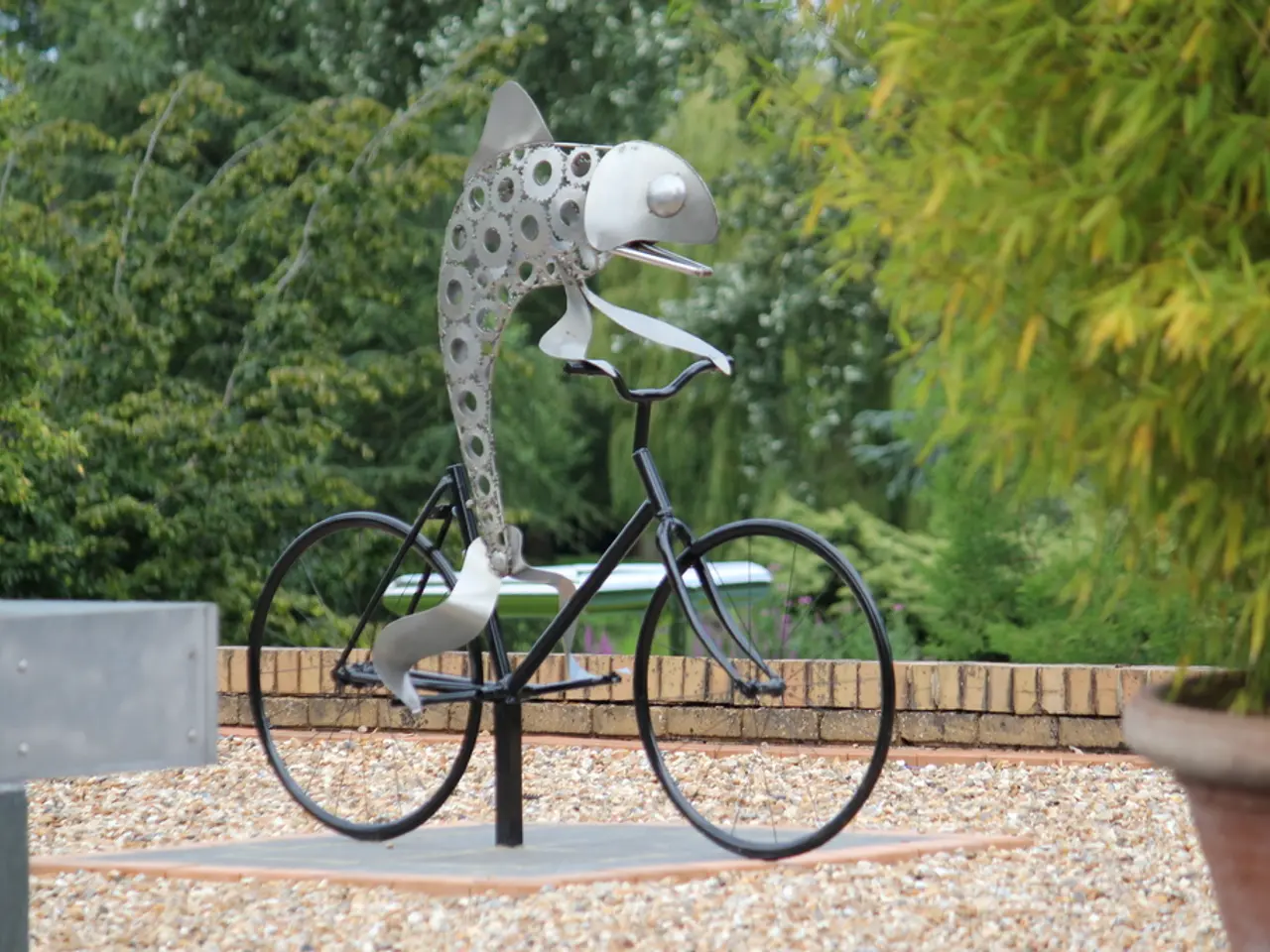Climate Change Defiance by Fishing Communities
In the fishing community of Toto, Liberia, life has taken a turn for the better for Kpalleh Gbawleh, a 55-year-old artisanal fisherman. Kpalleh is now the proud owner of a colorful motorized boat, thanks to Welthungerhilfe's Support Climate Change Sensitivity and Adaptation Strategies in Liberia (SCCSASIL) project.
For years, Kpalleh and his family have relied on small-scale fishing for their livelihood. However, their fishing activities were seasonally limited, particularly between June and September, leaving them struggling to make ends meet. This all changed when Kpalleh joined Welthungerhilfe's climate change project.
The SCCSASIL project aims to help fishing families like Kpalleh's adapt to climate change by expanding their skill sets and strengthening their resilience. It does this through several integrated approaches:
- Sustainable Fishing Practices: The project promotes sustainable fishing methods and better resource management, ensuring long-term availability of fish despite environmental changes.
- Climate Adaptation Training: It provides training and awareness programs for fishing families on climate change impacts, helping them understand and prepare for shifting weather patterns, changing fish migration, and ecosystem disruptions.
- Diversification of Livelihoods: To reduce dependency on fishing alone, the project encourages livelihood diversification. This includes introducing complementary income sources such as small-scale aquaculture, agriculture, or value-added fish processing, which help stabilize household incomes.
- Improved Infrastructure and Technology: The project supports the provision of better fishing gear, cold storage, and processing facilities. These improvements reduce post-harvest losses, increase the value of fish products, and enhance market access.
- Community Empowerment and Organization: By organizing fishing families into cooperatives or community groups, SCCSASIL strengthens collective bargaining power, facilitates shared learning, and improves access to financial resources and markets.
Through these combined efforts, the SCCSASIL project helps artisanal fishing communities in Liberia build resilience against climate-related challenges while securing and enhancing their livelihoods.
Kpalleh has already reaped the benefits of this project. He has acquired new fishing skills and learned how to operate and maintain a motorized boat. With the help of his brothers Nah and Pantee Gbawleh, who are experienced in carpentry and pit sawing, they collaborated to build a larger, semi-industrial wooden fishing boat.
This has significantly increased Kpalleh's daily income. What was once $8.33 has leaped to $51.28. Not only can he now provide for his family, but he is also able to pay for the education of his younger children. Kpalleh is hopeful about the future and plans to build a solid mudbrick house with four bedrooms for his family.
Small scale fishing provides livelihoods for more than 17,000 inhabitants along the Atlantic coast of Liberia. Families in Sinoe, River Gee, and Grand Gedeh counties will also benefit from SCCSASIL.
The project is supported by the German Federal Ministry for Economic Cooperation and Development (BMZ). With its focus on sustainable fishing practices from production through to processing and marketing, SCCSASIL is making a real difference in the lives of artisanal fishing families in Liberia.
- Kpalleh's home community of Toto, Liberia, has experienced an improvement in lifestyle due to the adoption of science-backed solutions in the form of Welthungerhilfe's SCCSASIL project.
- Through the SCCSASIL project, Kpalleh has gained expertise in workplace-wellness areas such as fishing and boat management, which have positively impacted his health-and-wellness and career-development.
- The SCCSASIL project acknowledges climate-change as a threat to the environment and has implemented strategies to help the fishing community adapt, thereby contributing to the field of environmental-science.
- To address the financial strain faced by fishing families, the SCCSASIL project encourages food-and-drink-related lifestyle changes such as introducing complementary income sources and value-added fish processing.
- As part of the project's efforts to promote home-and-garden sustainability, Kpalleh plans to build a mudbrick house, a more resilient housing solution for his family against climate-related challenges.
- To ensure continued success, the SCCSASIL project fosters education-and-self-development by organizing fishing families into cooperatives for collective bargaining power and shared learning.
- By reducing the community's reliance on fishing alone, improving infrastructure, and diversifying income sources, SCCSASIL facilitates overall business growth and contributes to technological advancements in the fishing industry.




